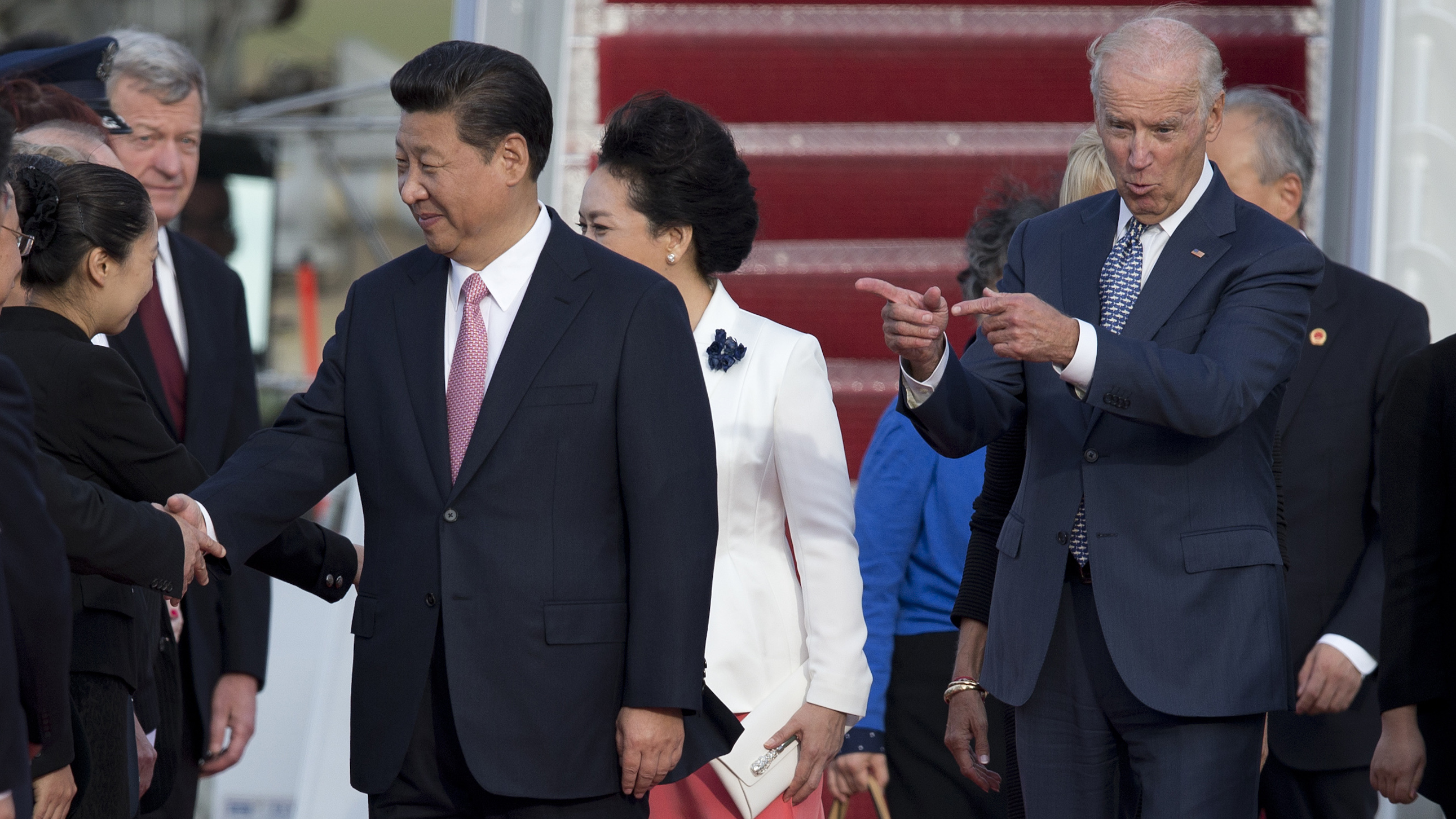Biden to tone down China rhetoric but friction will remain
https://arab.news/yq7ww

What will President-elect Joe Biden do on China? The answer to this question will define the future of our global economy and geopolitics over the next decade and beyond. After all, when the world’s top two most powerful countries clash, the world feels the tremors and the disruptions.
Former US Secretary of State Henry Kissinger laid out a worst-case scenario, arguing in a Bloomberg interview last month that “America and China are now drifting increasingly toward confrontation,” and “the danger is that some crisis will occur that will go beyond rhetoric into actual military conflict.” Chillingly, he said the countries could be sliding “into a catastrophe comparable to the First World War.”
Even absent a catastrophic First World War-type scenario, a confrontational relationship between China and the US has reverberations far beyond these two countries. Supply chains are disrupted, geopolitical alliances tested, economies strained, and businesses shaken. In the Middle East and North Africa (MENA) region, countries are increasingly being asked a tough question by Washington: Are you with us or with them?
That is not a question that MENA leaders — or any leader — wants to answer. After all, China has emerged as a top trading partner and source of investment in many countries across the region, as well as Africa and Asia. Leaders from these regions often retort: “Why do we have to choose among the giants?”
President Donald Trump put confrontation with China at the center of US foreign policy, and his weapons of choice have largely been sanctions, tariffs, and rhetoric. But it is not just Trump. In a series of US national security and defense strategy documents, China has been dubbed a “revisionist power” in great power competition with the US. US Director of National Intelligence John Ratcliffe did not mince his words when he wrote in a Wall Street Journal op-ed last week: “If I could communicate one thing to the American people from this unique vantage point, it is that the People’s Republic of China poses the greatest threat to America today.”
Still, even amid the sanctions, tariffs and fears, US-China trade remains robust. In the first nine months of 2020, China bought nearly $60 billion of US goods. It has been the third largest export destination for US goods over the past few years. In the past month alone, US soybean and corn sales to China have been exploding, and many leading US companies — stricken by pandemic pain elsewhere — have reported strong earnings in China.
However, the confrontation has been growing more ominous, with consulates shut down on both sides, stern rhetoric flying from official podiums and Twitter feeds, Chinese researchers fleeing the US in their thousands after FBI investigations, and proliferating executive orders banning US investment or interaction with high-profile Chinese companies.
So, will President-elect Biden reverse course and slow the slide in ties? The answer is likely yes, but we should not expect a dramatic course correction. Rather, we will likely see a lowering of the rhetoric and attempts to work with China on issues like climate change. But we should not expect a China “reset.” Friction will remain a recurring theme.
On the campaign trail, Biden and senior foreign policy hands in the Democratic Party were far more hawkish on China. Kurt Campbell, the top Asia official in the State Department under President Barack Obama, in September said: “I think there is broad recognition in the Democratic Party that Trump was largely accurate in diagnosing China’s predatory practices.”
Reports suggest he will not be quick to remove tariffs, though he will not use them in the same way Trump has.
Afshin Molavi
News reports quoting Biden foreign policy advisers suggest he will not be quick to remove tariffs, though he will not use them in the same way Trump has. He will instead seek to confront China through multilateral alliances of “like-minded” states, and will likely lower the rhetoric. Dean Cheng, a China scholar at the Heritage Foundation in Washington, told me that the Biden team is uncomfortable with the framing of China as “an enemy” or “adversary,” and does not want to fall into the “great power competition” narrative of the Trump years.
Interestingly, Biden’s Secretary of State nominee Antony Blinken regularly refers to China as “a major challenge,” rather than a major adversary or enemy. Expect the Biden team, as Cheng said, to downplay the Cold War narrative. Cheng also notes that the president-elect will want support from China on climate change.
“Given President-elect Biden’s view that climate change is an existential threat, they will have no choice but to cooperate with China, the world’s largest greenhouse gas emitter,” Cheng told me. But he also noted that China in 2021 is not the same China of the late Obama years, and public perceptions of Beijing have shifted dramatically in the US. According to the latest polling from Pew Research, nearly three out of four Americans have a negative attitude toward China.
Broadly speaking, the Cold War analogy is weak. China and Chinese companies are far more integrated with the US than the Soviet Union ever was. The world can expect continued friction between the US and China, but business will not screech to a halt, and the lowering of rhetoric and a move away from the great power competition narrative will likely lower the pressure on US allies to choose sides.
- Afshin Molavi is a senior fellow at the Foreign Policy Institute of the Johns Hopkins University School of Advanced International Studies and editor and founder of the “New Silk Road Monitor.” Twitter: @AfshinMolavi









































